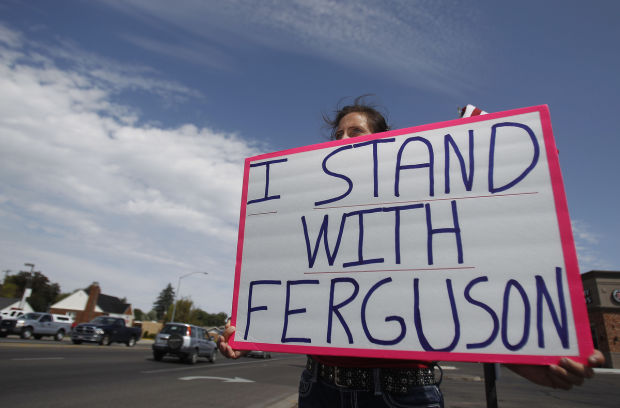Tuesday, November 25, 2014
maigret and the white privilege
[The old vagrant's] murder must have been premeditated, since people do not as a rule go around [modern cities] with...firearms in their pockets.
--from Maigret and the Loner by Georges Simenon
I have loved mystery novels from an early age, and in my early adulthood I discovered Georges Simenon's Maigret series. This is a police procedural involving a rumpled, middle-aged superintendent in late century Paris who does not always get his man, but always locates him. The books are short, often less than 150 pages, and rush along. Simenon wrote them for money, in as little as a week sometimes, and they are legion (his output hovers at around 200 novels; it is uncertain as even he forgot some of the pseudonyms under which he published). The English translations, fittingly, are often fast and loose with meaning, and where there are cultural differences a Parisian reading them would easily understand, there is no attempt made to accommodate a young American also from the late 20th century. Their titles are always, invariably the same, Maigret and the..., as if the superintendent is not seeking an individual but a class or a type. They are my comfort food.
I have been following the events in Ferguson, Missouri, pretty closely, from Michael Brown's death to last night's announcement that there would be no charges filed against Officer Darren Wilson. I'll admit, I had made up my mind already that Officer Wilson was culpable. I hoped that the grand jury would see the evidence that way and he would be held responsible for the shooting, but I also had made up my mind that was unlikely.
On my way back to where I am staying last night I listened to the press conference on one of the stations I often listen to, Urban View, which airs shows by Reverend Al Sharpton, Tavis Smiley, Karen Walker and Joe Madison (The Black Eagle, my favorite), among others. When the announcement was made that he was not going to be indicted, I turned off the radio for four minutes and thirty seconds, a request made by Brown's parents memorialize the four and a half hours their son's body lay open in the street after the police arrived. Then I switched it back on and listened to the people calling in to make their opinions known.
Yes, opinions are like assholes and all that, and most of them said exactly what I assumed they would say. But what came across to me was the anger and sense of betrayal they felt. These were the words and immediate reactions of a people who had climbed their way out of a cynical belief that maybe, this time, things would be different. Like the Trayvon Martin case, it had taken the outcry from social media for the police even to do the minimum investigation and to hold the self-admitted killer of a teenaged black boy to some form of accountability. They had made their way to the upper layers of hope, and had been sunk by the announcement down again into cynicism and despair. Nothing, every one of them said in varying words, Nothing has changed. Black murders don't count. We live in a police state in which we can be picked off for as simple a threat as walking down the center of the street.
I allowed myself, after reaching my in-laws' home, to take advantage of my privileges and turn off my computer and radio and sink into the comforting embrace of Maigret.
I have listened to the evidence that's available and I understand how the grand jury can find Officer Wilson's account believable. My own belief, for what it's worth, is that the situation unfolded at least in part as he reported, but grew terribly, terribly larger than he expected. I don't pretend to know what happened. But as a person who worked in direct care with adults with enormous mental deficits, I know that he is not the first person to have had a situation backfire on him, overreacted to the situation and someone was hurt, and then relied on the privilege his status automatically gave him to downplay his own responsibility as much as possible, and put the fault on the victim. I am convinced that is what happened here.
Perhaps the grand jury is correct. Perhaps Officer Darren Wilson is not at fault. Perhaps he was only acting on what his training, his communities--police, geographical, cultural--and his prejudices had told him were the right ones. Perhaps it is those, and thus us, who are at fault. Of course, as someone once said, when everyone is at fault, no one is at fault.
The voices on the radio were right, nothing has changed. And nothing will change in the immediate future. As with the aftermath of the release of George Zimmerman and the incredible amount of time (admittedly, this may be a good sign) devoted to the grand jury in the case of the chokehold death of Eric Garner, the hoopla will surge for a few days, maybe a week, maybe longer. But eventually it will disappear down the memory hole we seem to have for people killed for complicated reasons by people we are told we should see as protectors. And when it happens again Michael Brown's name will be listed with Emmet Till, Eleanor Bumpers, Michael Stewart, Amidou Diallou, and many others who have been killed by people who know better but who chose to treat them as if their lives were, at best, less important than other people's. And we will cry and protest and perhaps even riot again. And nothing will change.
Until one day, for better and for worse, it suddenly will. Woe to us all then.
Labels:
anti-government,
beloved community,
central midwest,
change,
death,
ferguson,
killing,
polls
Subscribe to:
Post Comments (Atom)

No comments:
Post a Comment